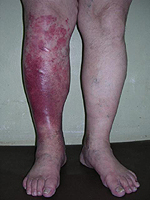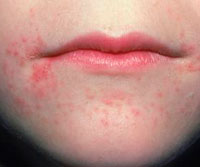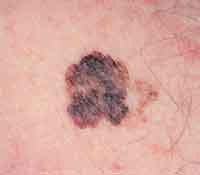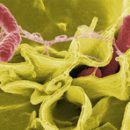What is Rozh? What are the symptoms and causes of faces? Answers to these questions you will find in the article.
Content
What is Rozh
Ryzh (grinding inflammation) - sharp, often
recurrent infectious disease that manifests itself
fever, symptoms of intoxication and characteristic lesion of the skin with
Education of a sharp limited focus of inflammation.
It is wide
Common streptococcal infection with sporadic
Incidence increasing in the summer and autumn period. By
prevalence in the modern structure of infectious pathology
occupies 4th place - after sharp respiratory and intestinal infections,
viral hepatitis, especially often registered in senior age
Groups. Approximately 1/3 constitute patients with recurring gear, in
Mainly women.
There may be any serunov (Group of microorganisms)
Betta-hemolytic streptococcus group A, the same serotypes can
cause other streptococcal diseases (angina, pneumonia, sepsis,
Meningit and T. NS.). In addition, Streptococcus is widespread in
Nature, to the conditions of the external environment, it is quite stable.
Source
infections in the face is a patient of any form of streptococcal
infections or streptococcuse. There is a special electoral
susceptibility or predisposition to feel. Some people are ill
repeatedly because immunity after the faces is unstable.
Penetrate
Streptococci into the body through small damage to the skin and mucous membranes.
Perhaps exogenous infection (contaminated tools,
dressing material), as well as from chronic streptococcal foci
infections (for example in patients with chronic tonsillitis). Wherein
The state reactivity is crucial,
Conditioning extensive fluctuations in susceptibility to infectious
pathogens, in particular to streptococci.
Distinguish between Rozh
primary, secondary and recurrent. Inflammatory process can
be on any part of the body, but more often is localized on the skin of the face and
Glands. On the mucous membranes, the grinding inflammation is rare.
Symptoms of faces
Symptoms of grinding inflammation
The incubation period of the grinding inflammation is 2-7 days (more often than 3-5 days), then maybe several hours. The disease always begins acutely.

Generaloxic
Syndrome precedes local changes. Fast temperature rise
accompanied by chills, often shaking. Revealed pronounced
Signs of intoxication - headaches, dizziness, weakness,
nausea, possibly vomiting. In severe cases there may be cramps and nonsense.
After 10-20 hours, local symptoms appear from the beginning of the disease.
At first
Patients are experiencing in limited areas of itching, sense of sweating,
Skin tightening. Then in these places appear swelling, pain,
Relevant regional lymphhadenitis development. Typical rims
The plaque is a plot of bright saturated erythema with uneven
contours in the form «Flame languages». Inflammatory process
applies to subcutaneous fatty cells, as a result
developing expressed swelling, especially when localization in areas with
loose subcutaneous tissue (face, genital). Plaque raised Nad
surrounding skin, because it is excreted from surrounding unchanged skin
edge roller, with the center of it as if. To the touch of Fask
dense, hot, painful when pressing.
In some cases
the process can be limited to this, and after a few days will leave after
Himself small peeling. However, more often without treating the process quickly
progresses, so-called creeping or metastatic
Forms. At the same time there are complications of a septic nature.
Local manifestations of the faces are subject to 10-14 day of the disease, the peasostity and pigmentation of the skin can continue to be maintained.
Fever keeps more often within 5-7 days.
From
The most frequent complications of faces can be noted ulcers, necrosis, abscesses,
Flegmons, as well as disorders of lymph circulation, leading to the lindostasis.









